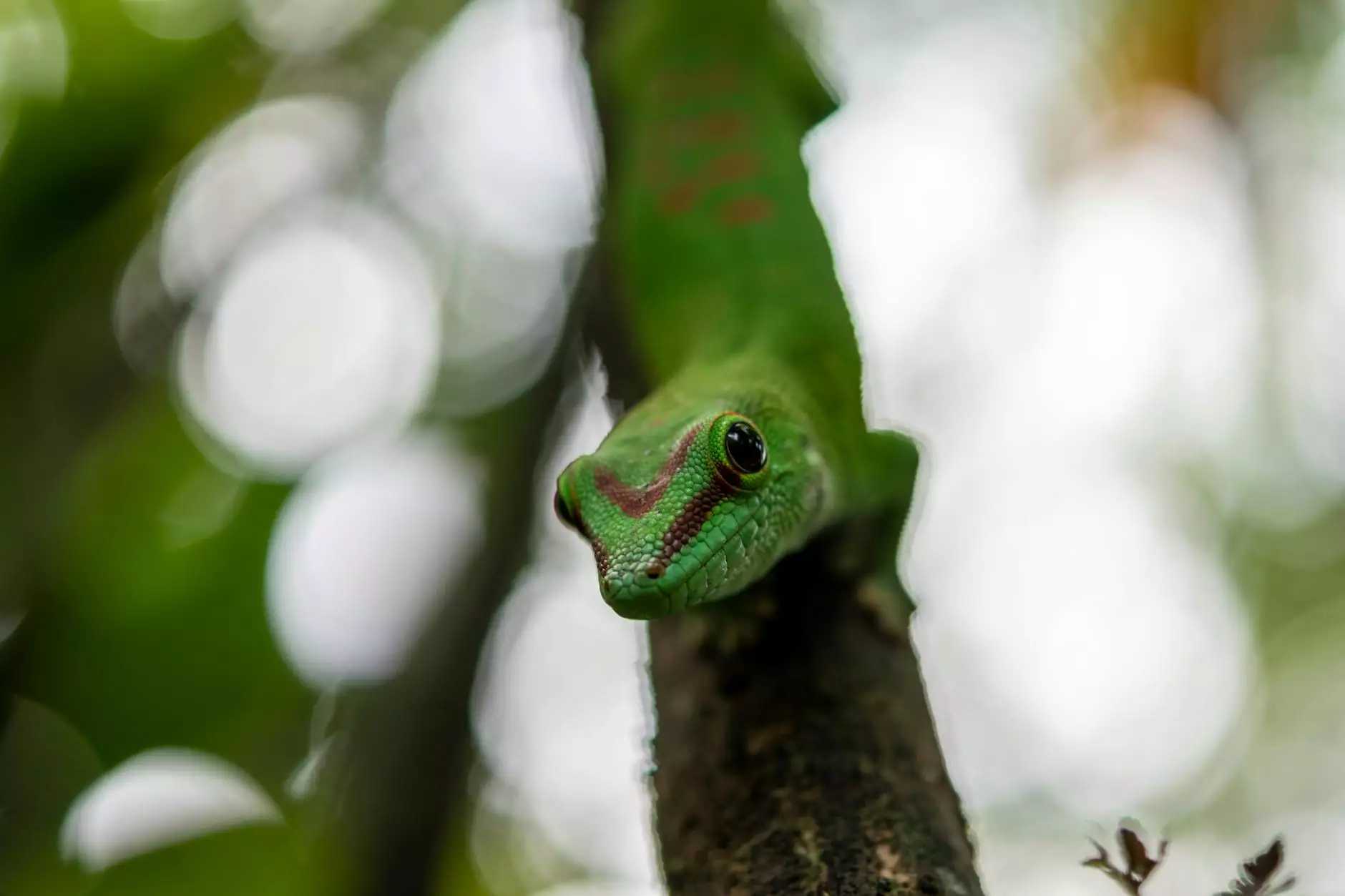The Wonderful World of Pet Geckos: Your Ultimate Guide

Introduction to Pet Geckos
Geckos are one of the most fascinating reptiles to keep as pets. They come in a wide variety of colors, sizes, and temperaments, making them suitable for both novice and experienced reptile owners. In this comprehensive guide, we will explore everything you need to know about pet gecko adoption, care, and the unique charm these creatures bring to our lives.
Why Choose a Pet Gecko?
Choosing a pet gecko offers several advantages:
- Low Maintenance: Compared to other pets, geckos typically require less daily maintenance.
- Space Efficient: They need minimal space, making them ideal for those living in small homes or apartments.
- Unique Personalities: Each gecko has its own quirks, bringing joy and amusement to their owners.
- Long Lifespan: Many gecko species can live for 10 to 20 years with proper care.
- Educational Value: Caring for a gecko can be a great educational experience for children and adults alike.
Popular Types of Pet Geckos
There are numerous types of geckos available for adoption. Here are some of the most popular species among pet owners:
1. Leopard Gecko
The Leopard Gecko is one of the most common pet geckos. Known for its distinctive spotted appearance, it is generally friendly and easy to handle.
2. Crested Gecko
Crested Geckos are known for their unique appearance, with fringed crests running from their heads to their tails. They are often regarded as a visually striking pet and are relatively easy to care for.
3. African Fat-Tailed Gecko
This species, the African Fat-Tailed Gecko, is similar in care to the leopard gecko but has a stockier body and a more subdued color palette. It is known for being docile and friendly.
4. Gargoyle Gecko
Gargoyle Geckos are another intriguing and stunning species. They are resilient and adaptable, making them great for beginners.
Setting Up Your Pet Gecko’s Habitat
Adequate housing is essential for the health and happiness of pet geckos. Here’s how to create the optimal environment:
Enclosure Size
For adults, a glass terrarium that is at least 20 gallons is recommended. Make sure the enclosure has sufficient ventilation and a secure lid to prevent escapes.
Temperature and Lighting
Geckos are ectothermic, meaning they rely on external heat sources to regulate their body temperature. A temperature gradient within the enclosure (with a basking area of about 88-92°F and a cooler side around 72-78°F) is important. Using a heat mat, basking lamp, or under-tank heater can help maintain these temperatures.
Substrate
Choose a suitable substrate for your pet gecko. Options include:
- Paper towels (easy to clean)
- Coconut fiber (popular option)
- Reptile carpet (reusable and washable)
Hiding Spots and Decor
Geckos appreciate places to hide for security. Incorporate items like:
- Hiding caves
- Plants (real or fake)
- Logs and branches for climbing
Water and Humidity
Always provide fresh water in a shallow bowl. The humidity level in the enclosure should be monitored and kept at around 30-40%, which can be supplemented with misting or a humidity gauge.
Feeding Your Pet Gecko
The diet for a pet gecko primarily consists of insects. Here are some guidelines:
1. Food Choices
Common insects that geckos enjoy include:
- Crickets
- Mealworms
- Dubia roaches
- Waxworms (as an occasional treat)
2. Supplements
To ensure optimal health, geckos need calcium and vitamin D3 supplements. Dust their food with these supplements a few times a week.
3. Feeding Frequency
Young geckos should be fed daily, while adults can eat every other day. Monitor their eating habits to maintain a healthy weight.
Health Care for Your Pet Gecko
Regular health checks and awareness of potential health issues are crucial for keeping your gecko healthy. Key points to note include:
1. Signs of Illness
Monitor your gecko for:
- Changes in appetite or weight
- Unusual lethargy
- Skin shedding issues
- Abnormal feces
2. Temperature Regulation
Maintaining proper temperature gradients is crucial to avoid metabolic stress or health problems.
3. Routine Vet Visits
It’s advisable to find a vet familiar with reptiles for regular check-ups and any concerns.
Common Myths About Pet Geckos
Despite their popularity, several myths surround pet geckos. Here are a few common misconceptions:
1. Geckos Are Nocturnal and Don’t Need Daylight
While geckos are primarily nocturnal, they still benefit from a natural light cycle. Providing UVB light can help with their overall health.
2. Geckos Can Live Together Without Issues
Many species are solitary and can become territorial. It is essential to research specific species compatibility before housing them together.
3. All Geckos Are Difficult to Handle
While some geckos are skittish, many species, including the leopard and crested gecko, can be very friendly and enjoy interaction.
Pet Gecko Adoption: What to Consider
When you decide to adopt a pet gecko, consider the following:
1. Source of Adoption
Ensure you adopt from reputable breeders or rescue organizations. This not only supports humane practices but also ensures you receive a healthy animal. For those in Australia, websites like buyreptiles.com.au offer great options for adoption.
2. Research Before You Buy
Understand the specific care requirements for the species you’re interested in and prepare your home accordingly.
3. Financial Commitment
Understand that adopting a gecko involves ongoing costs for food, habitat maintenance, and veterinary care.
Conclusion
Pet geckos can be a rewarding addition to your household. With their unique appearances, manageable care requirements, and engaging personalities, they are becoming increasingly popular among pet enthusiasts. By understanding their needs and providing an enriching environment, you can enjoy a wonderful companionship with your pet gecko for many years to come. Explore the options at Buy Reptiles for your new friend today!
Additional Resources
- Pet Adoption Services
- Aquarium Services
- Pet Gecko Care Tips









